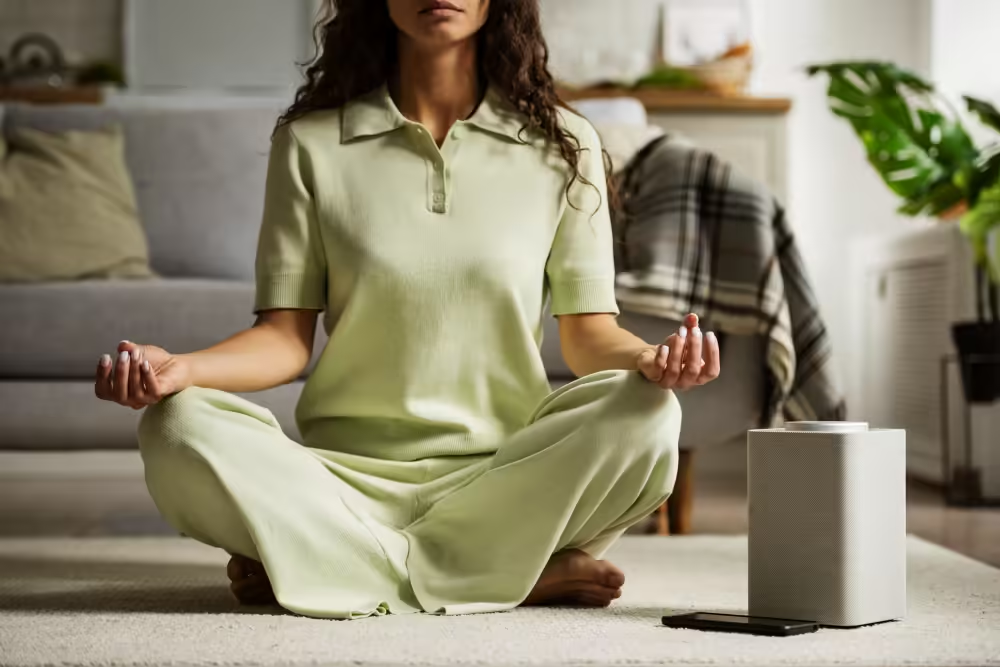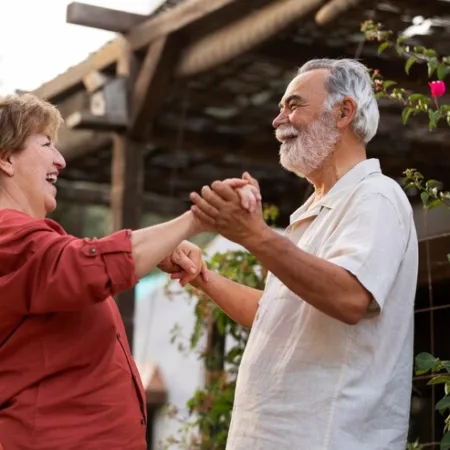Introduction
Stress and anxiety are pervasive issues in today’s fast-paced world, affecting millions of people globally. While professional help and medication can be effective, many individuals seek natural remedies to alleviate their symptoms. Home remedies offer a holistic approach to managing stress and anxiety, often with fewer side effects. This article provides an in-depth exploration of various home remedies for stress and anxiety, their effectiveness, and how they can be incorporated into daily life.
Understanding Stress and Anxiety
What is Stress?
Stress is the body’s natural response to perceived threats or challenges. It triggers the release of hormones like cortisol and adrenaline, preparing the body for a fight-or-flight response. While stress can be beneficial in short bursts, chronic stress can have detrimental effects on both physical and mental health.
Types of Stress:
- Acute Stress: Short-term stress that arises from specific situations or events. Examples include job interviews, public speaking, or meeting deadlines.
- Chronic Stress: Long-term stress resulting from ongoing situations, such as financial difficulties, work-related pressures, or relationship issues.
What is Anxiety?
Anxiety is a feeling of worry, nervousness, or unease about something with an uncertain outcome. It is a normal emotion that everyone experiences at times. However, when anxiety becomes excessive or persistent, it can interfere with daily activities and overall quality of life.
Types of Anxiety Disorders:
- Generalized Anxiety Disorder (GAD): Characterized by chronic, exaggerated worry about everyday life events.
- Panic Disorder: Involves sudden, intense episodes of fear or discomfort, often with physical symptoms like heart palpitations and shortness of breath.
- Social Anxiety Disorder: Fear of social situations where one might be judged or embarrassed.
- Specific Phobias: Intense fear of specific objects or situations, such as heights or spiders.
The Impact of Stress and Anxiety on Health
Stress and anxiety can have far-reaching effects on both physical and mental health, influencing various aspects of an individual’s life. Understanding these impacts is crucial for recognizing the importance of managing these conditions.
Physical Health Consequences
Chronic stress and anxiety can lead to several physical health issues, including:
- Cardiovascular Problems: Increased risk of hypertension, heart attacks, and stroke.
- Immune System Suppression: Higher susceptibility to infections and illnesses.
- Gastrointestinal Issues: Problems like irritable bowel syndrome (IBS) and stomach ulcers.
- Muscle Tension and Pain: Persistent muscle tension can lead to headaches, back pain, and other musculoskeletal problems.
Psychological and Emotional Effects
- Mood Disorders: Increased risk of depression and other mood disorders.
- Cognitive Impairment: Difficulties with concentration, memory, and decision-making.
- Emotional Instability: Heightened feelings of irritability, frustration, and sadness.
Behavioral Changes
- Sleep Disturbances: Insomnia, restless sleep, and other sleep disorders.
- Appetite Changes: Overeating or loss of appetite.
- Substance Abuse: Increased reliance on alcohol, drugs, or other substances as coping mechanisms.
Home Remedies for Stress
Herbal Teas
Chamomile Tea: Known for its calming effects, chamomile tea can help reduce stress and promote relaxation.
Peppermint Tea: Helps to relieve tension and improve mood.
Lavender Tea: Known for its soothing properties, lavender tea can help alleviate stress.
How to Use:
- Brew a cup of chamomile, peppermint, or lavender tea and drink slowly.
- Consider adding honey or lemon for additional benefits.
Aromatherapy
Aromatherapy involves using essential oils to promote relaxation and reduce stress.
Popular Essential Oils for Stress:
- Lavender: Known for its calming properties.
- Bergamot: Uplifting and calming.
- Ylang-Ylang: Reduces tension and promotes a sense of well-being.
How to Use:
- Use a diffuser to disperse essential oils in your home.
- Add a few drops of essential oil to a warm bath.
- Apply diluted essential oils to pulse points or use in a massage.
Physical Activity
Regular exercise can significantly reduce stress by releasing endorphins, which are natural mood elevators.
Types of Exercise:
- Aerobic Exercise: Activities like running, swimming, or cycling.
- Strength Training: Weightlifting or resistance exercises.
- Yoga and Tai Chi: Combining physical movement with mindfulness and relaxation.
Meditation and Mindfulness

Meditation and mindfulness practices can help calm the mind and reduce stress levels.
How to Practice:
- Mindfulness Meditation: Focus on your breath and observe thoughts without judgment.
- Guided Meditation: Use apps or recordings to guide you through a meditation session.
- Body Scan Meditation: Focus on different parts of the body, releasing tension as you go.
Deep Breathing Exercises
Deep breathing exercises can activate the body’s relaxation response, reducing stress.
How to Practice:
- Deep Breathing: Inhale deeply through the nose, hold for a few seconds, and exhale slowly through the mouth.
- 4-7-8 Breathing: Inhale for 4 seconds, hold for 7 seconds, and exhale for 8 seconds.
- Alternate Nostril Breathing: Inhale through one nostril, exhale through the other, and alternate.
Progressive Muscle Relaxation (PMR)
PMR involves tensing and relaxing different muscle groups to reduce physical tension and stress.
How to Practice:
- Start with your toes and work your way up to your head.
- Tense each muscle group for a few seconds, then release and relax.
Home Remedies for Anxiety
Herbal Supplements
Certain herbal supplements have been shown to reduce anxiety.
Popular Herbal Supplements:
- Ashwagandha: An adaptogen that helps the body cope with stress.
- Valerian Root: Known for its calming effects and use in treating anxiety and insomnia.
- Passionflower: Used to treat anxiety and improve sleep.
How to Use:
- Take herbal supplements as directed on the packaging or by a healthcare provider.
- Consult a healthcare provider before starting any new supplements.
Magnesium
Magnesium deficiency has been linked to anxiety. Supplementing with magnesium can help reduce anxiety symptoms.
Sources:
- Green leafy vegetables, nuts, seeds, and whole grains.
- Magnesium supplements (consult a healthcare provider for appropriate dosage).
Omega-3 Fatty Acids
Omega-3 fatty acids have anti-inflammatory properties and can help reduce anxiety.
Sources:
- Fatty fish like salmon, mackerel, and sardines.
- Flaxseeds, chia seeds, and walnuts.
- Omega-3 supplements (consult a healthcare provider for appropriate dosage).
Probiotics
Gut health is closely linked to mental health. Probiotics can help improve gut health and reduce anxiety.
Sources:
- Yogurt, kefir, sauerkraut, kimchi, and other fermented foods.
- Probiotic supplements (consult a healthcare provider for appropriate dosage).
Acupressure
Acupressure involves applying pressure to specific points on the body to relieve anxiety.
Points to Target:
- Yintang: Located between the eyebrows, also known as the third eye point.
- Shen Men: Located in the upper part of the ear.
- Neiguan (P6): Located on the inner forearm, about three finger-widths below the wrist.
How to Use:
- Apply firm pressure to these points for several minutes.
- Use circular motions to massage the points.
Journaling
Writing about thoughts and feelings can help individuals process emotions and gain insights into their anxiety triggers.
Journaling Prompts:
- Gratitude Journaling: Writing about things you are grateful for.
- Emotional Release: Expressing emotions through writing.
- Problem-Solving: Exploring solutions to challenges.
Dietary Changes for Managing Stress and Anxiety

Balanced Diet
A balanced diet can help regulate mood and reduce stress and anxiety.
Tips:
- Eat regular, balanced meals with a variety of fruits, vegetables, lean proteins, and whole grains.
- Avoid processed foods, caffeine, and alcohol.
Foods to Include
Certain foods can help reduce stress and anxiety.
Examples:
- Dark Chocolate: Contains antioxidants that can help reduce stress.
- Turmeric: Contains curcumin, which has anti-inflammatory properties.
- Berries: High in antioxidants and can help improve mood.
- Avocado: Contains healthy fats and B vitamins that can help reduce stress.
Foods to Avoid
Certain foods can exacerbate stress and anxiety.
Examples:
- Caffeine: Can increase anxiety and disrupt sleep.
- Alcohol: Can interfere with sleep and exacerbate anxiety.
- Processed Foods: High in sugar and unhealthy fats, which can negatively affect mood.
Lifestyle Changes for Preventing Stress and Anxiety
Regular Exercise
Regular physical activity can help reduce stress and anxiety by releasing endorphins and promoting overall well-being.
Recommended Activities:
- Aerobic exercises like walking, running, or cycling.
- Strength training and yoga.
Healthy Sleep Habits
Good sleep hygiene is crucial for preventing stress and anxiety.
Tips:
- Establish a regular sleep schedule.
- Create a restful sleep environment by keeping the bedroom dark, quiet, and cool.
- Avoid screens and stimulating activities before bedtime.
Time Management
Effective time management can help reduce stress by preventing overwhelm and improving productivity.
Time Management Techniques:
- Prioritize Tasks: Focus on high
-priority tasks first.
- Set Goals: Break large tasks into smaller, manageable steps.
- Use a Planner: Keep track of tasks and deadlines.
Social Support
Building and maintaining strong social connections can help reduce stress and anxiety.
Tips:
- Spend time with friends and family.
- Join clubs or groups with similar interests.
- Seek support from a therapist or counselor if needed.
Alternative Therapies
Yoga and Tai Chi
Yoga and Tai Chi combine physical movement with mindfulness and relaxation, helping to reduce stress and anxiety.
How to Practice:
- Join a class or follow online tutorials.
- Practice regularly to reap the benefits of these mind-body practices.
Meditation and Mindfulness
Meditation and mindfulness practices can help calm the mind and reduce stress and anxiety levels.
How to Practice:
- Mindfulness Meditation: Focus on your breath and observe thoughts without judgment.
- Guided Meditation: Use apps or recordings to guide you through a meditation session.
- Body Scan Meditation: Focus on different parts of the body, releasing tension as you go.
Acupuncture
Acupuncture can help reduce stress and anxiety by promoting balance and relieving pain.
How to Use:
- Seek a licensed acupuncturist for treatment.
Biofeedback
Biofeedback involves using sensors to monitor physiological functions and teaching individuals how to control them to reduce stress and anxiety symptoms.
How to Use:
- Consult a biofeedback therapist for training and practice.
Natural Supplements for Stress and Anxiety
Adaptogens
Adaptogens are natural substances that help the body adapt to stress and promote balance.
Popular Adaptogens:
- Ashwagandha: Reduces stress and anxiety.
- Rhodiola Rosea: Increases resilience to stress.
- Holy Basil: Known for its calming effects.
How to Use:
- Take adaptogen supplements as directed on the packaging or by a healthcare provider.
- Consult a healthcare provider before starting any new supplements.
L-Theanine
L-Theanine is an amino acid found in tea leaves that promotes relaxation without causing drowsiness.
Sources:
- Green tea and black tea.
- L-Theanine supplements (consult a healthcare provider for appropriate dosage).
GABA
Gamma-Aminobutyric Acid (GABA) is a neurotransmitter that promotes relaxation and reduces anxiety.
Sources:
- GABA supplements (consult a healthcare provider for appropriate dosage).
- Foods rich in GABA, such as fermented foods and green tea.
Long-Term Strategies for Managing Stress and Anxiety
Keeping a Stress and Anxiety Diary
Tracking stress and anxiety occurrences can help identify triggers and patterns, making it easier to manage and prevent them.
What to Include:
- Date and time of stress/anxiety onset.
- Duration and intensity of symptoms.
- Potential triggers (foods, activities, stress levels).
- Remedies used and their effectiveness.
Regular Medical Check-Ups
Regular check-ups with a healthcare provider can help monitor overall health, manage underlying conditions, and adjust treatment plans as needed.
Tips:
- Discuss stress and anxiety frequency and severity with your healthcare provider.
- Update them on any new symptoms or changes in health status.
Mind-Body Practices

Yoga: Combines physical postures, breathing exercises, and meditation to promote relaxation and reduce stress and anxiety.
Tai Chi: A gentle form of exercise that involves slow, deliberate movements and deep breathing.
How to Use:
- Practice regularly to reap the benefits of these mind-body practices.
Conclusion
Managing stress and anxiety is an ongoing process that requires a combination of strategies and support. Home remedies offer a natural and holistic approach to alleviating symptoms and promoting overall well-being. From herbal teas and supplements to lifestyle changes and alternative therapies, there are numerous ways to reduce stress and anxiety. It is essential to consult with a healthcare provider before starting any new treatment, especially for chronic or severe stress and anxiety. By incorporating these remedies into daily life, individuals can take control of their mental health and improve their overall quality of life.
Natural Remedies for Common Ailments: Effective Home Treatments










No Comment! Be the first one.